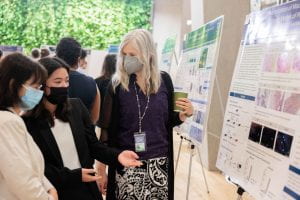The following blog post was written by fellow UHPer and Fall 2023 SURE Award recipient, Lexi Carmine (Biomedical Engineering, ’24). Read on about Lexi’s research and how she plans to utilize the SURE Award funding to further expand upon her experience!
Hello!! My name is Lexi and I am a senior Biomedical Engineering major. I am in Professor Zderic’s Therapeutic Ultrasound Lab and am currently working on a project dealing with the ultrasound modulation of melatonin release. I have always been very passionate about research and I found this lab when I took Professor Zderic’s class and I have loved working with ultrasound ever since. I plan to utilize the award money to continue my work on this project as it has been successful in finding statically significant results. I have learned so much from working on this project and the amount of doors that it has opened for me has been incredible. I have gotten to travel to Seattle to present my work at the BMES conference and network with various companies and schools there. Excitingly, I have also just accepted an offer for the Post Baccalaureate Program at the NIH continuing to work on ultrasound-related research with the Frank Lab. I don’t think that I would have been able to find opportunities such as these without this project, and I appreciate the SURE award greatly in supporting those endeavors. By expanding my work on my current project, I hope to continue finding promising results and present at another conference in the upcoming semester. The next steps in my work are to add a positive control as I did not have that before, and continue to run trials at various frequencies. Research is amazing to me because not only does it allow you to find those answers for yourself, it truly teaches you so much about yourself and it has taught me to be a patient and really built upon my problem-solving capabilities. Not everything always works out like it is supposed to in experiments, and understanding that simple fact has allowed me to become someone that can evolve with any situation. You learn to think critically and make tough decisions and then you can learn from your mistakes. That being said, I am so excited to continue growing from this project in the Spring semester and I am so grateful for the university’s support and support from the Honors program!

Interested in applying for your own SURE Award funding? Find out more about the application process here!



